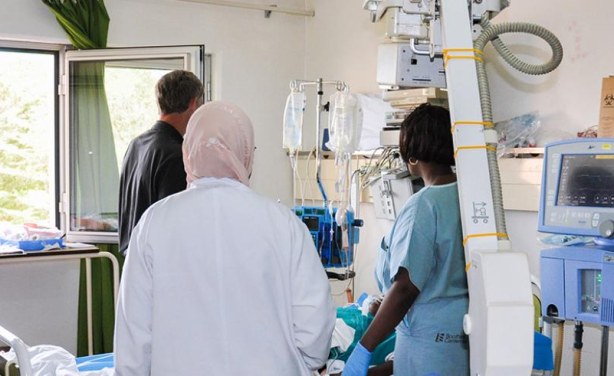The Ministry of Health in partnership with USAID Rwanda launched of the ‘500 Midwifery Scholarship Program’ through the USAID Ireme project implemented by Management Sciences for Health (MSH).
This programme aims to address the shortage of healthcare professionals in Rwanda, focusing on midwives.
The midwifery scholarship programme will provide 500 bursaries across three teaching institutions including; the University Catholique de Kabgayi (98 students), East African Christian College (240 students), and Kibogora Polytechnique (162 students).
The scholarship programme launched on Tuesday, March 19, during the ongoing five-day MSH Global Leadership Conference themed ‘Local Roots, Global Impact.’
Speaking to the Minister of Health, Dr Sabin Nsanzimana, during the conference on Monday, March 18, he highlighted that MSH has been collaborating with the government for many years.
“Hosting their meeting in Rwanda is important and reflects the organisation’s ongoing programmes in Rwanda’s healthcare sector. What is noteworthy is that in recent days, there have been discussions between MSH and us on how to sustain our collaboration for the next five years, aligning with healthcare sector priorities, particularly in quadrupling medical practitioner training,” he said.
Nsanzimana noted that MSH prioritises the long-term priority of training medical personnel (midwives, nurses, and doctors). In this area, collaboration is essential – they also contribute to strengthening health systems, including training and hospital construction, significantly impacting the country.
Additionally, he said, “We embarked on a joint project three months ago, slated to continue for five years. Although Rwanda currently has 1,200 midwives, we aim to quadruple this number.”
The programme is aligned with the government’s visionary 4×4 strategy, which seeks to quadruple the healthcare workforce within four years. By investing in midwifery education, USAID Ireme and the government target to improve maternal and new-born health outcomes, thus contributing to Sustainable Development Goal 3 (Ensure healthy lives and promote well-being for all at all ages).


